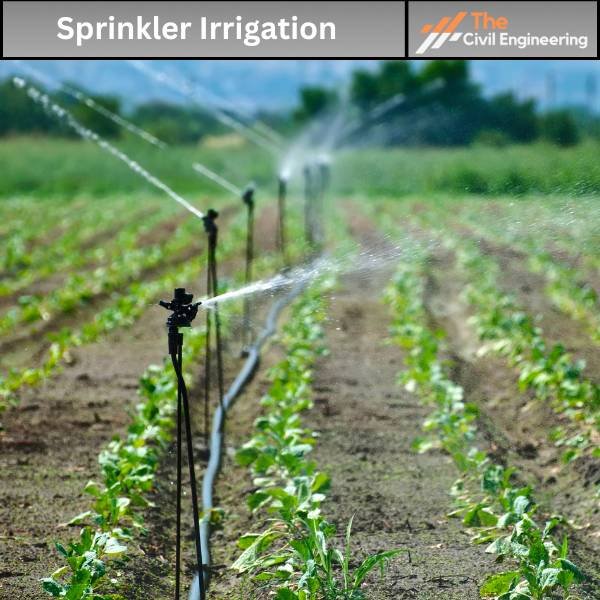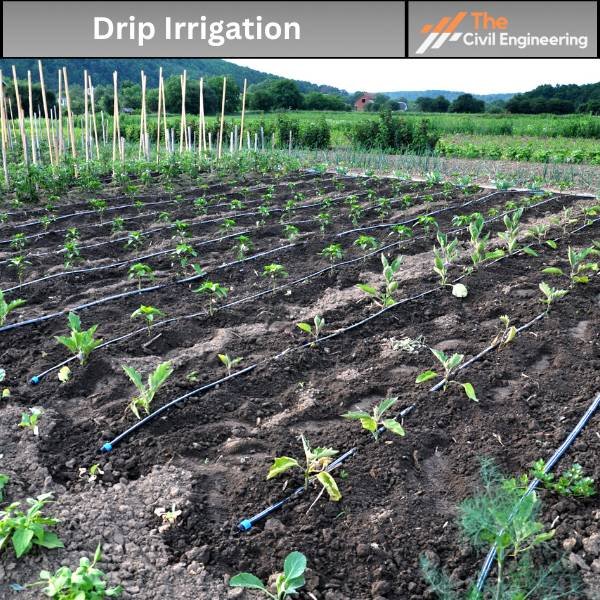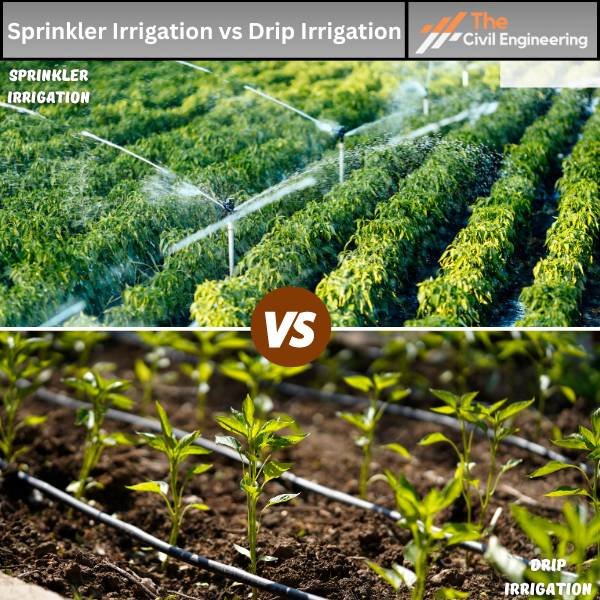In this article, we are discussing the differences between sprinkler irrigation and drip irrigation.
1. Introduction
a. Sprinkler Irrigation
Sprinkler irrigation is also called overhead irrigation. In this method of irrigation water is applied in the form of a spray or artificial rain.
Water is sprayed into the air and allowed to fall on the ground surface somewhat resembling rainfall.
The spray is developed by the flow of water under pressure through small orifices or nozzles.

The pressure is usually obtained by pumping.
With careful selection of nozzle sizes, operating pressure, and sprinkler spacing the amount of irrigation water required to refill the crop root zone can be applied nearly uniform at the rate to suit the infiltration rate of the soil.
| Read: Difference Between Dozer and Excavator |
b. Drip Irrigation
Drip Irrigation is a special type of subsurface irrigation. It is also known as trickle irrigation.
It is the latest field irrigation technique used where water is scarce with salt problems. This method includes the application of water gently and directly to the root zones of the plants.
A network of valves, pipes, tubing and emitters is used for distributing water in the drip irrigation system.

The drip irrigation system has high efficiency compared to other types of irrigation systems based on design, installation, maintenance, and operation.
The main goal of a drip irrigation system is to minimize evaporation.
2. Differences Between Sprinkler Irrigation and Drip Irrigation
| S.no | Sprinkler System | Drip System |
| 1. | In this method of irrigation, water is applied in the form of a spray or artificial rain. | This method includes the application of water gently and directly to the root zones of the plants. |
| 2. | Rotating sprinkler-head systems are mostly utilized for sprinkler irrigation. | Permanently or temporarily buried dripper lines are used for drip irrigation. |
| 3. | Water loss is high. | Less water loss compared to sprinkler irrigation. |
| 4. | It is used when there is no shortage of water. | It is used when there is scarce of water. |
| 5. | The evaporation rate is high. | The evaporation rate is negligible. |
| 6. | Power consumption is high. | Energy-saving. |
| 7. | The wind effect is considerable | The wind effect is not considerable. |
| 8. | Expensive as compared to drip irrigation. | Cheap as compared to sprinkler irrigation. |
| 9. | The water application pattern does not match the planting pattern. | The water application pattern must match the planting pattern. |
| 10. | It wets some plants by moistening. | It wets the only root. |
| 11. | Water runoff is higher as compared to Drip Irrigation. | Water runoff is low as compared to Sprinkler Irrigation. |
Conclusion

